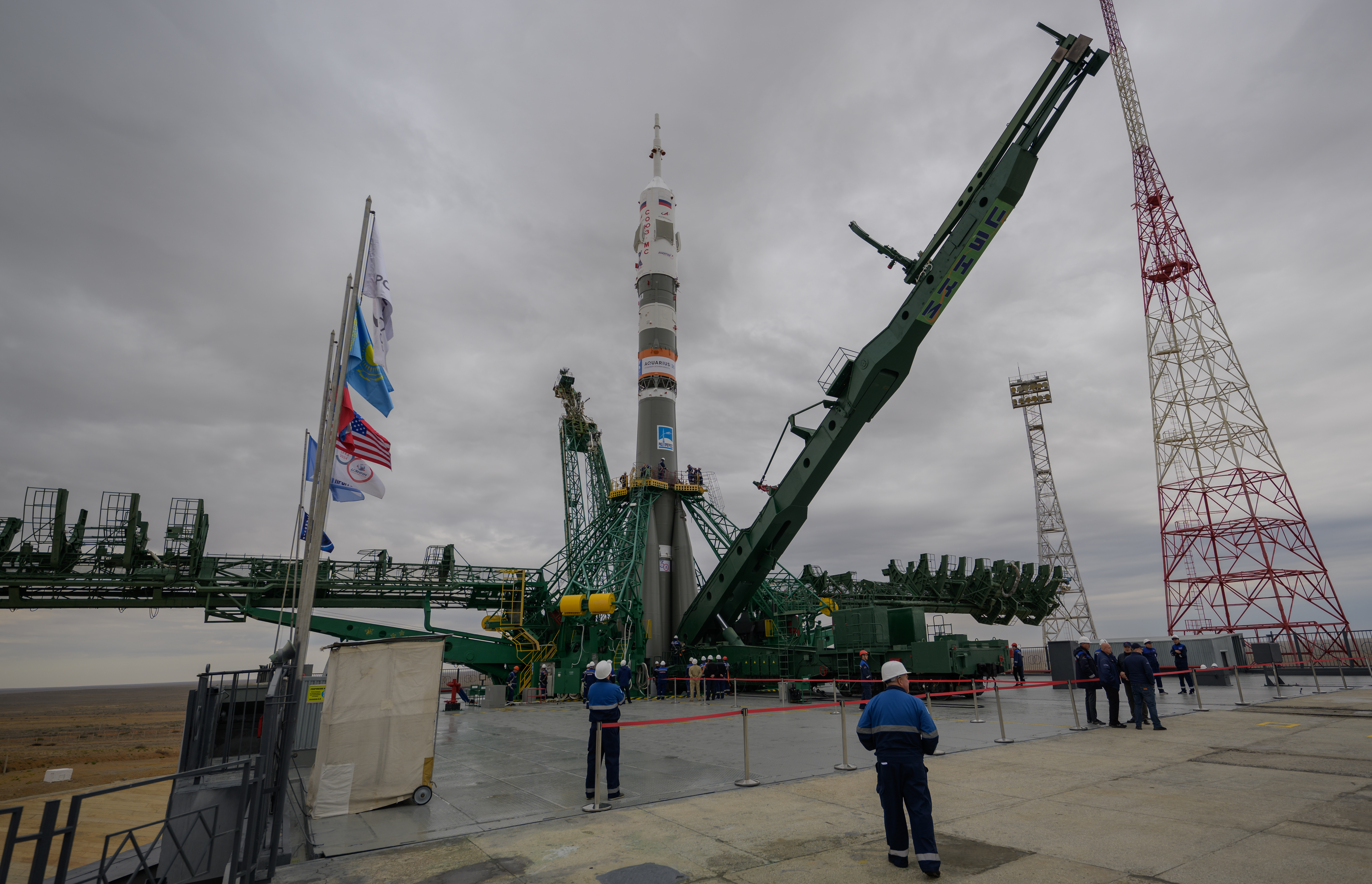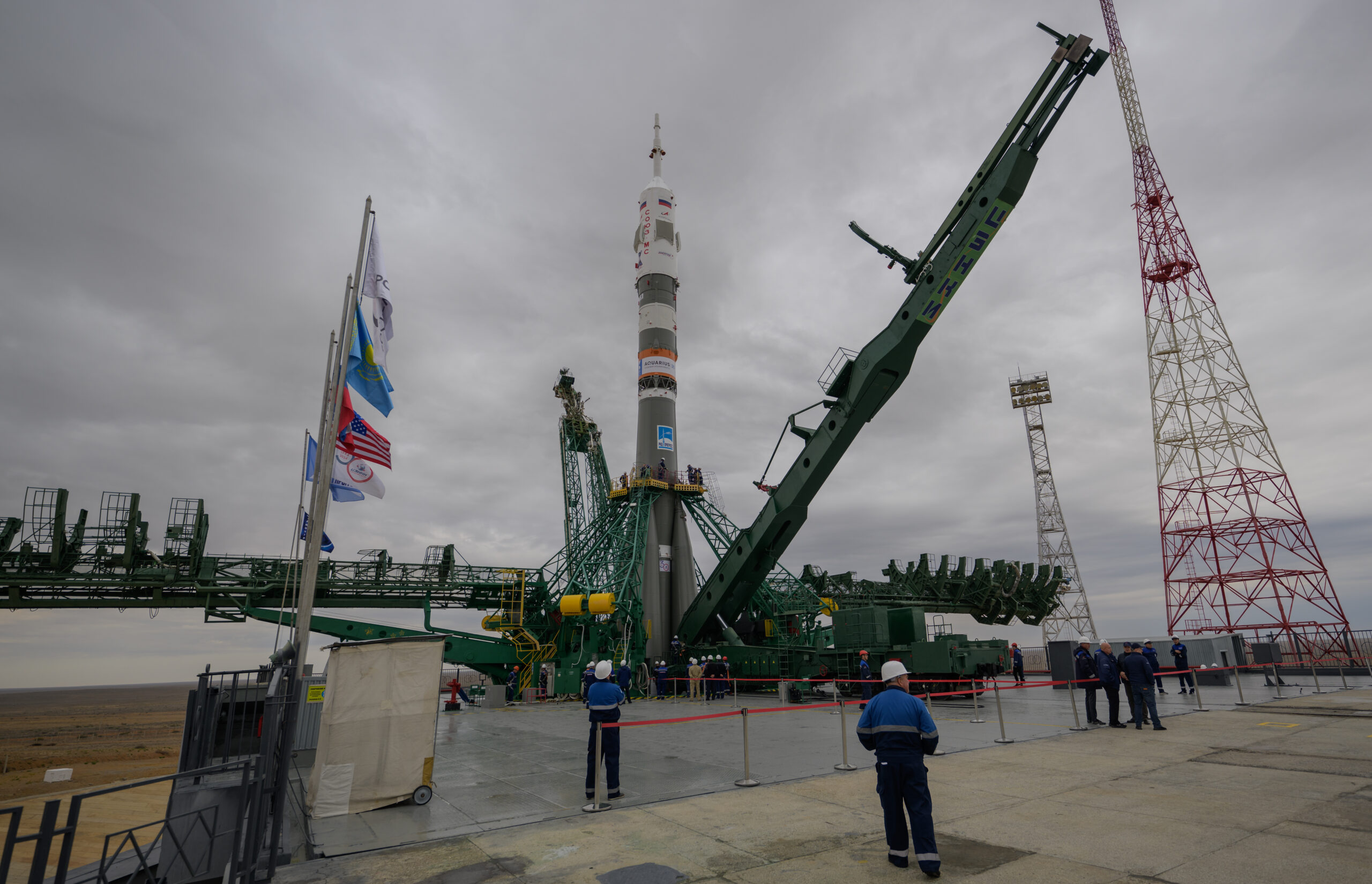
Human research activities and space biology kept the International Space Station residents busy on Tuesday as they prepare for the arrival of three new crewmates who are set to lift off from the Baikonur Cosmodrome in Kazakhstan on Wednesday.
NASA astronaut Don Pettit, along with Roscosmos cosmonauts Alexey Ovchinin and Ivan Vagner, will launch aboard the Soyuz MS-26 spacecraft at 12:23 p.m. EDT Wednesday, Sept. 11. Following launch, the trio will take a short ride to the station and dock at 3:33 p.m. to the Rassvet module before opening the hatches and joining the Expedition 71 crew in orbit, where they’ll spend approximately six months living and working in space.
Aboard the orbiting lab, NASA astronaut Matthew Dominick completed some cable and power reconfigurations in the Columbus laboratory module, then finalized hardware preps for human research activities that took place throughout the day.
Dominick was joined by NASA astronaut Jeanette Epps, and in coordination with remote ground teams, spent the day using ultrasound and tomography hardware to collect Epps’ blood pressure data and view her optic nerve, retina, and cornea. Epps then donned thigh cuffs through the remainder of the day to test how they could be used to possibly reverse space-induced headward fluid shifts in astronauts.
In the Japanese Experiment Module, NASA astronaut Tracy C. Dyson set up the Confocal Space Microscope, configured its lenses, and inserted samples for analysis. She then completed some medical training before ending the day swapping the gloves, sleeves, and media bag in the Life Science Glovebox.
NASA astronaut Mike Barratt set his sights to prepping for future space botany investigations throughout the day. He charged the Multispeq tool, which is used to capture plant data for the APEX-09 investigation, then updated the software that logs and manages the data.
A suite of activities topped NASA astronaut Suni Williams’ schedule on Tuesday as she replaced hardware on the Packed Bed Retractor Experiment, completed some orbital plumbing, and prepped for upcoming crew arrivals. Her NASA crewmate, Butch Wilmore, collected water samples from the potable water dispenser and later analyzed them for microbial growth. Wilmore also powered on the KERMIT microscope, swapped the lens, and installed new slides. In the evening, the duo held a conference with SpaceX ground teams.
Current station Commander Oleg Kononenko swabbed various surfaces throughout the orbital complex to assess for microbial growth in microgravity. He then spent the rest of the day packing items for return on the Soyuz MS-25 spacecraft, which is due to bring him, along with Dyson, and cosmonaut Nikolai Chub, home in late September.
Chub spent the day packing items for departure then took some time to observe the glow of Earth’s nighttime atmosphere in near-ultraviolet and collect condensate samples from the water recovery system. His Roscosmos crewmate, Alexander Grebenkin, spent a majority of the day on orbital plumbing tasks, including replacing hoses and running a distillation cycle on the water processing unit.
Learn more about station activities by following the space station blog, @space_station and @ISS_Research on X, as well as the ISS Facebook and ISS Instagram accounts.
Get weekly updates from NASA Johnson Space Center at: https://roundupreads.jsc.nasa.gov/
Get the latest from NASA delivered every week. Subscribe here: www.nasa.gov/subscribe

